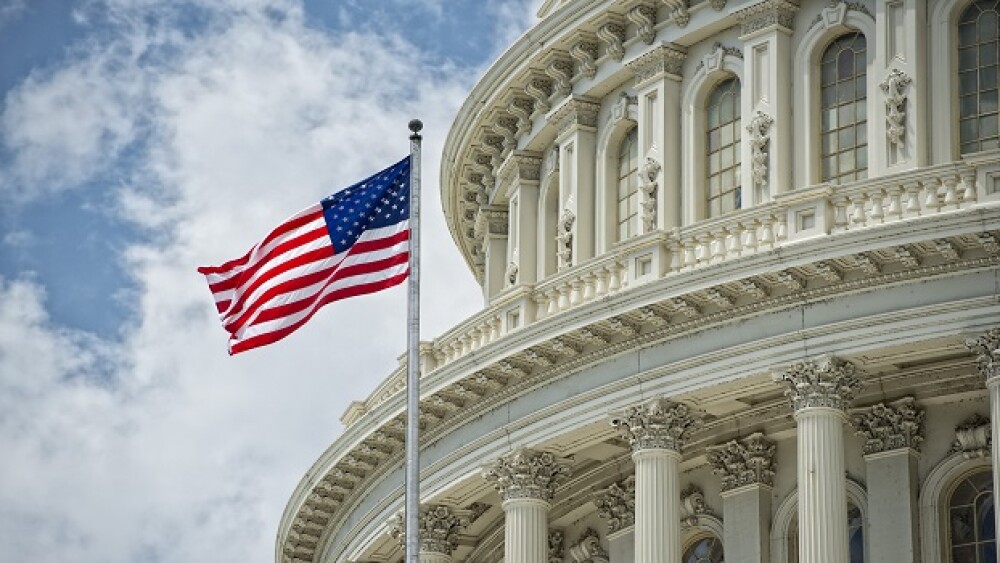The ink is barely dry on the recently-passed “Right to Try Act,” and the law’s author, Sen. Ron Johnson (R-Wis.) and U.S. Food and Drug Administration (FDA) Commissioner Scott Gottlieb are butting heads.
The ink is barely dry on the recently-passed “Right to Try Act,” and the law’s author, Sen. Ron Johnson (R-Wis.) and U.S. Food and Drug Administration (FDA) Commissioner Scott Gottlieb are butting heads.
The law, whose official name is the Trickett Wendler, Frank Mongiello, Jordan McLinn, and Matthew Bellina Right to Try Act of 2017, amends the Federal Food, Drug, and Cosmetic Act. The law’s intent is to allow terminally ill patients to have access to experimental drugs the FDA hasn’t approved yet. The patients can request the drugs from the drugmakers if they have been part of a small-scale Phase I clinical trial and are still being considered by the FDA.
According to The Hill, “FDA Commissioner Scott Gottlieb has not spoken against the law, but Johnson took issue with some of his recent comments and statements. On Wednesday, Gottlieb in a statement said FDA stands ready to implement the legislation ‘in a way that achieves Congress’ intent to promote access and protect patients.’”
Johnson, apparently responding to a news report where Gottlieb said the FDA might need to write guidance or regulation to achieve the goals of the law, wrote in a letter to Gottlieb, “Given your comments, and as the law’s primary author, I would like to make this legislation’s intent absolutely clear. It is not meant to grant FDA more power or enable the FDA to write new guidance, rules, or regulations that would limit the ability of an individual facing a life-threatening disease from accessing treatments.”
President Donald Trump has been a supporter of the legislation, and during the signing ceremony on May 30, said he believes “hundreds of thousands” of lives will be saved because of the legislation, according to CNN.
The patients who appeal to take the drugs would not be considered to be part of the clinical trial. As a result, any adverse reactions to the experimental therapeutics taken by the patient will not affect clinical review.
Proponents of the law argued that it provides a lifeline for terminally ill patients. Critics argue that it will weaken regulatory protections. They also claim that it will not address fundamental obstacles to experimental drugs, which is likely what Gottlieb was getting at. It would not be unusual for governmental agencies to be required to draft guidance to make signed legislation workable.
Prior to this legislation, patients had to appeal to the FDA for access to experimental drugs via the agency’s compassionate use program. BioSpace previously reported that the FDA receives about 1,000 annual requests for compassionate use and approves about 99 percent of the time. Trump’s statement that the law will save “hundreds of thousands” of lives appears to be hyperbole at best. It also undercuts why the law was necessary at all.
One issue pharmaceutical companies have brought up, and Gottlieb noted in a CNBC interview earlier this year, is that drug companies do not have excess medications manufactured for additional use at that stage in the clinical trial process. He stated, “They don’t have a lot of excess supply available… so I think there are going to be significant supply constraints to getting access.”
Janet Woodcock, director of the FDA’s Center for Drug Evaluation and Research (CDER) emailed her staff about the new legislation, indicating they were reviewing it and would “work to implement it in a manner consistent with Congressional intent and with FDA’s public health mission. We will be working expeditiously to develop further information on how to respond to such inquiries. However, we believe that sponsors are in the best position to provide information on the development status of their products (which is critical to determining whether a drug or biological product is eligible for use under Right to Try) and whether a sponsor intends to make an investigational product available under Right to Try.”





